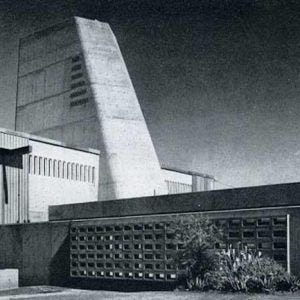 The US Defense Logistics Agency (DLA), on behalf of the US Air Force and Department of Defense (DOD), has issued a notice of intent to award (NOITA) a contract to US-based fission technology company Oklo to provide heat and electricity to the Eielson Air Force Base near Fairbanks in Alaska as part of the Air Force's micro-reactor pilot programme. This programme was initiated in response to the Fiscal Year 2019 National Defense Authorisation Act, which required DOD to identify potential military locations to site, construct, and operate a micro-reactor. The NOITA initiates the acquisition process to potentially award the contract to Oklo under a long-term power purchase agreement executed by the DLA.
The US Defense Logistics Agency (DLA), on behalf of the US Air Force and Department of Defense (DOD), has issued a notice of intent to award (NOITA) a contract to US-based fission technology company Oklo to provide heat and electricity to the Eielson Air Force Base near Fairbanks in Alaska as part of the Air Force's micro-reactor pilot programme. This programme was initiated in response to the Fiscal Year 2019 National Defense Authorisation Act, which required DOD to identify potential military locations to site, construct, and operate a micro-reactor. The NOITA initiates the acquisition process to potentially award the contract to Oklo under a long-term power purchase agreement executed by the DLA.
Oklo is developing the Aurora microreactor, which uses heat pipes to transport heat from the reactor core to a supercritical carbon dioxide power conversion system to generate electricity. It will use HALEU fuel. Oklo says the reactor builds on the Experimental Breeder Reactor-II (EBR-II) and space reactor legacy. EBR-II features a hexagonal fuel element with a sealed heat pipe and a passive air-cooling system. Oklo initially marketed a 1.5 MWe microreactor version of the Aurora, but has now expanded its capacity offerings from 15 MWe to 100 MWe.
Oklo received a site permit in 2019 from the US Department of Energy (DOE) to build its first Aurora facility at Idaho National Laboratory (INL). In 2020, Oklo submitted a combined licence application to the Nuclear Regulatory Commission (NRC) to build and operate the Aurora microreactor at INL. However, NRC denied the application, citing the company’s failure to provide sufficient design information. A revised application was submitted in September 2022. The DLA contract may be conditional on Oklo receiving and NRC licence.
In August 2018, the Air Force office of energy assurance recommended Eielson Air Force Base for the microreactor pilot. It was determined to be an ideal location for the pilot project due to the existing infrastructure, suitable climate, and “critical mission resilience requirement”. A microreactor could also meet the base’s year-round energy needs for station heating.
The pilot project will be coordinated with the Air Force Office of Energy Assurance, the office of the deputy assistant secretary of Defense for Environment & Energy Resilience, the Department of Energy and NRC. The groups will also be working together to oversee the safety of the project.
“Today is a historic first for the Air Force, state of Alaska, and the nation, said Dr Ravi Chaudhary, Assistant Secretary of the Air Force for Energy, Installations & Environment. “Safe, reliable, clean energy using microreactor technology will be an integral part of Air Force installations in the future. The best part of this innovation is that we are coming together at the beginning to demonstrate this capability – partnering with key regulatory authorities, state, and local communities to ensure we get this right and do it safely.”
Nancy Balkus, Deputy Assistant Secretary of the Air Force for Environment, Safety & Infrastructure, noted: “Our partnerships with Oklo Inc, Nuclear Regulatory Commission, Department of Energy, Alaska stakeholders and Tribal Nations are imperative to a successful pilot and future implementation scalability of this transformational technology.”
Colonel Paul P Townsend, 354th Fighter Wing Commander at Eielson Airforce Base said: “Eielson is eager to welcome this cutting-edge technology onto the base. The NOITA to Oklo Inc reinforces our commitment to innovation in order to protect and defend the nation with even greater efficiency and effectiveness.” The microreactor is expected to be operational by the end of 2027, as directed by the fiscal year 2019 National Defense Authorisation Act.
Image: The Eielson Air Force Base in Alaska (courtesy of USAF)






